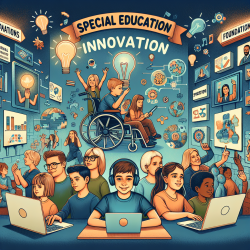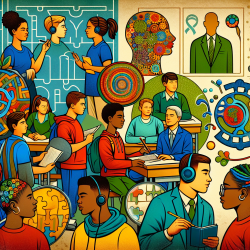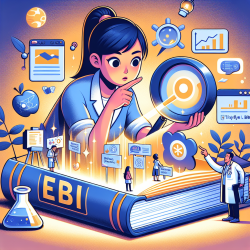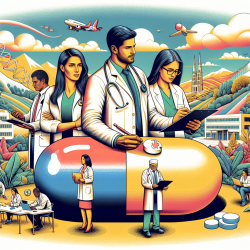As we navigate the complexities of the 21st-century educational landscape, the demand for innovative solutions in special education has never been more critical. Special education advocacy groups, tirelessly working to ensure equitable access to education for all students, often find themselves at the frontline, combating not just systemic barriers but also an overwhelming sense of burnout. It's in this context that the emergence of online therapy services, particularly online speech therapy, presents a beacon of hope and a testament to the power of innovation in education.
The shift towards online therapy services in schools is not just a trend but a necessary evolution in how we approach special education. This transition is propelled by the increasing need to provide consistent, high-quality therapy services to students with special needs, amidst the challenges of therapist staffing shortages and the ongoing impacts of global health crises. Online speech therapy, in particular, has emerged as a vital tool in ensuring that students continue to receive the support they need, without interruption.
For special education advocacy groups feeling the strain of advocating for services amidst these challenges, the integration of online therapy services into school programs offers a promising solution. This innovation not only addresses the immediate need for accessible speech therapy but also represents a broader shift towards more flexible, inclusive educational practices.
- Breaking Barriers to Access: Online therapy services remove geographical and logistical barriers that often hinder students' access to specialized therapy. Students in rural or underserved areas, who previously had limited or no access to speech therapists, can now receive high-quality therapy sessions from the comfort of their school or home.
- Enhancing Flexibility and Convenience: The flexibility of online therapy allows for scheduling sessions at times that are most convenient for students, thereby reducing absences and ensuring consistent participation. This flexibility is also a boon for schools struggling with therapist staffing shortages, as it allows for more efficient allocation of resources.
- Empowering Advocacy Efforts: For advocacy groups, online therapy services offer concrete evidence of the potential for technology to democratize access to special education services. This can be a powerful argument in policy discussions and funding debates, highlighting the role of innovation in meeting the needs of all students.
However, the transition to online therapy services is not without its challenges. Concerns about the efficacy of online versus in-person therapy, the digital divide, and ensuring the privacy and security of students' information are all valid. Yet, the overwhelming body of evidence supports the effectiveness of online speech therapy, with many students showing comparable, if not superior, progress to traditional methods. Moreover, the ongoing advancements in technology and cybersecurity are steadily addressing these concerns, making online therapy an increasingly viable option.
For special education advocacy groups feeling burnt out and overwhelmed, the message is clear: embracing online therapy services is not just about adopting new technology—it's about innovating our approach to education to meet the diverse needs of all students. It's about ensuring that every child has the opportunity to reach their full potential, regardless of their circumstances. And it's about providing relief and support to those dedicated individuals and groups who work tirelessly to advocate for these students.
In conclusion, as we look to the future of special education, the role of online therapy services, such as speech therapy in schools, cannot be overstated. By innovating and adapting, we can overcome the barriers that have long prevented many students from receiving the support they need. For advocacy groups, educators, and parents alike, the shift towards online therapy services offers a path forward—a way to renew our commitment to inclusive, equitable education for all.










